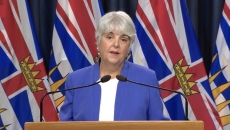Though the politics of Parliament Tuesday were largely focused on a controversy around how the Liberals handled a contract for a student grant program, MPs also passed a new piece of legislation.
Bill C-20 contains a revamped approach to COVID-19 financial measures, and also dealt with the delays the pandemic has created in the legal system.
Here's a look at what's in the bill, which will go to the Senate in the coming days.
Wage subsidy
The program covers up to 75 per cent of employee salaries, and was designed to keep people on the payroll even as business remains sluggish during recovery from the shutdown.
The bill extends the program until Nov. 21, with the ability to extend it further by regulation to no later than Dec. 31.
It also provides a new calculation for who qualifies. Previously, employers had to show a decline of 30 per cent in revenue due to the pandemic.
Now there are two parts. One, a base subsidy available to all eligible employers, with the subsidy amount varying depending on the scale of revenue decline. Those who lost less than 30 per cent are now eligible.
Two, a top-up subsidy of up to an additional 25 per cent for those employers that have been most adversely affected by the COVID-19 crisis.
Disability benefits
The bill grants a payment of up to $600 to help cover additional costs incurred by people with disabilities due to the COVID-19 pandemic.
To qualify, someone must either already receive the disability tax credit, the Canada Pension Plan or Quebec Pension Plan disability benefit or be on disability supports provided by Veterans Affairs Canada. That's an expansion of the previous approach, which had just given benefits to those receiving the tax credit.
For Canadians who received the one-time seniors payment and who qualify for the disability payment, they will see their seniors payments topped up to reach the $600 maximum.
Justice system
The bill adjusts time limits relating to civil litigation proceedings and other time limits included in federal legislation.
For civil litigation, the bill suspends existing time limits under federal laws for starting a legal proceeding or doing something in a legal proceeding.
Some examples include suspending the 30-day period to file an appeal of a divorce decision, or an assessment or decision made under the Income Tax Act.
For regulatory matters, the law allows federal ministers to make temporary orders to extend or suspend other time limits identified in specific federal legislation for which they are responsible.
For example, there are time limits on how long the government has to perform national security reviews under the Investment Canada Act and now the government can take longer.
There is a sunset clause on those measures, meaning the ability to suspend time limits expires at the end of September and no order to suspend time limits can extend past the end of 2020.
All temporary orders must also be published on a government website within five days, and be tabled in Parliament.




.jpg)

